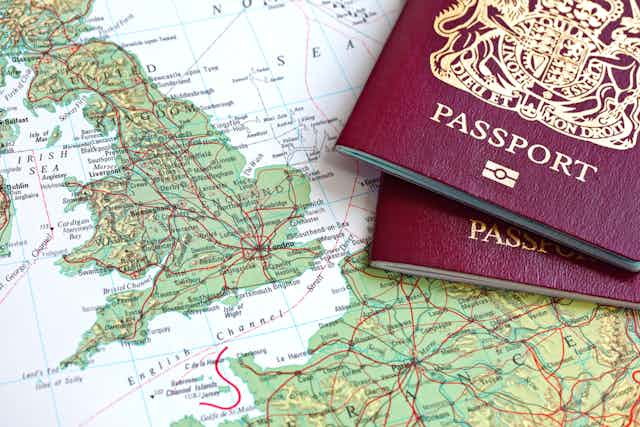So, the UK has voted to leave the EU. Divorce proceedings will likely begin through the EU Treaty’s Article 50 framework. But we know very little about how relations between Britain and its neighbours will evolve. And most noticeably, we know very little about what happens with regard to immigration – even though it was one of the defining themes of the campaign.
There are serious questions that need to be answered about how Brexiters envisage navigating this issue. Some of them are below.
Will immigration be restricted?
During the campaign, there was a lack of honesty on migration.
Despite big promises, representatives of the Leave camp have already implied that EU migration into the UK cannot be cut in the way that was promised before the vote.
Although we have no idea what a post-Brexit migration policy will look like, we do know that non-EU migration alone has been over 100,000 every year for the past 25 years. And that is supposed to be the type of immigration that the British government can control.
Not only has the government failed to reduce total net migration to below 100,000, it has failed even to get non-EU migration below this figure – and that’s supposed to be migration that it can control more easily than immigration from other EU countries. This raises very serious questions for the future shape of UK immigration policy, let alone its possible consequences.
Can a points-based system work?
The main proposal coming from the Leave campaigners has been a points-based system. Yet not only do countries operating a points-based system, such as Australia, Canada and the US, have higher migration per capita than the UK, even those in the UK who advocate much tighter controls on immigration believe the points-based system may not be effective.
Another, overlooked problem with the points-based system is that it assumes governments know better than businesses who should be employed. They set the rules about who qualifies for entry, based on assumed skills gaps. Only the people who are needed by the jobs market are allowed in – except that rules over skills set by governments can never be sufficiently targeted in terms of the precise skills gaps actually faced by the firms who do the hiring.
This is contradictory to the free-market arguments offered by Leave campaigners over trade.
How do we fill the gap left behind?
Another dimension to the migration debate is how to replace what is lost if all the immigrants who contribute to the economy have to stop going to the UK.
We have heard time and again how immigrants make a net contribution to the country, paying more in taxes than they take out in benefits. Not only do they carry out vital jobs in the NHS and other public services but they also create new businesses, which also contribute to the economy.

It is inevitable that these positive contributions will be lost under a system that reduces immigration. Given that immigrants are more likely than UK citizens to be in work, what does that mean for sectors which rely on migrant labour?
A key example is the NHS. Up to one in five NHS workers is from outside the UK. Over 10% of doctors and 4% of nurses are from other countries in the European Economic Area.
Vote Leave campaigners blamed migrants for treatment waiting times (as well as difficulties getting school places and high house prices). Yet research shows that, partly because migrants tend to be younger, fitter and use the NHS less, areas with higher proportions of migrants also have shorter waiting times.
This decision has created a huge amount of uncertainty that will be with us for many years. And the effects of this will be felt around the world. Only time will tell if, as one journalist put it, the UK now becomes the most hated country in the world rather than one that welcomes willing workers.

